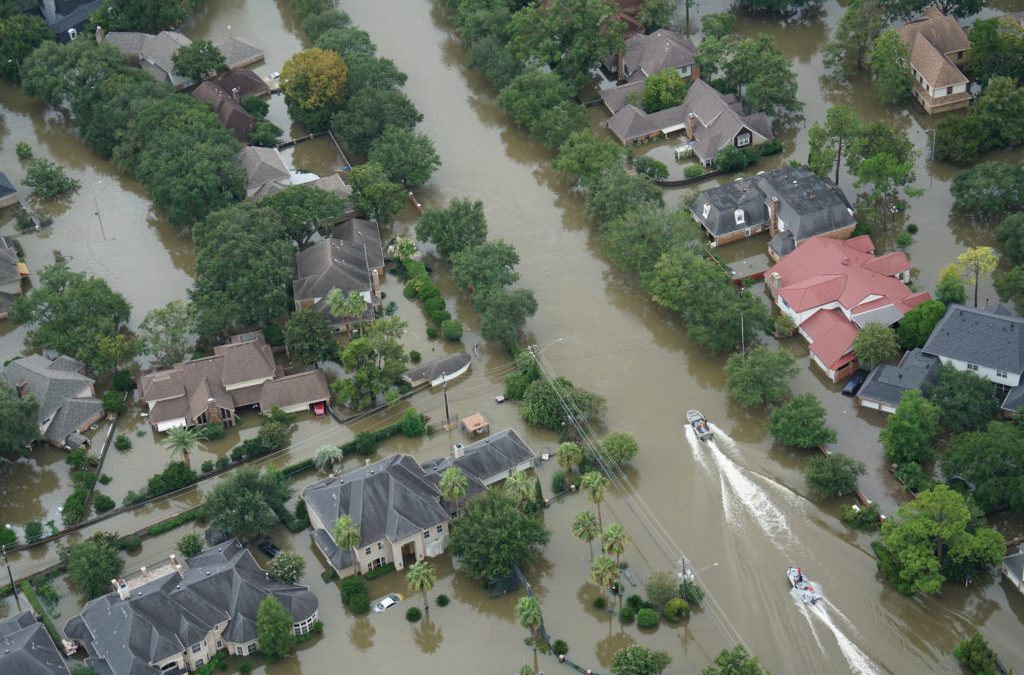Flooding is a risk to any business, whether you are inland or near the coastline. In fact, in the past five years all 50 states have experienced floods, and at least one in four businesses that shuts down from a natural disaster never reopens. According to the U.S. government, the average commercial flood claim in the past five years has been around $89,000, and the average property damage due to flooding adds up to more than $3.5 billion annually.
Floods have many causes and can occur anywhere in the country, but here are some of the most common events that lead to flooding:
- Storm surges in hurricane-prone areas
- Flash flooding, caused by periods of intense rainfall
- Mudslides, caused by long, heavy rain periods on a hill or mountainside
- Snowmelt, caused by the still-frozen ground unable to absorb excess water
- Ice jams, which are formed when an ice chunk flowing in a river or stream blocks, dams or narrows passageways, causing overflow
- Urban development, such as new construction and/or ground paving, which alters the topography by not allowing the land to drain properly
A general policy will not cover flood damage, and this type of insurance is only available through the National Flood Insurance Program (NFIP) and limited private carriers. The NFIP will cover all the types of floods discussed above, including mudslides, though it is important to note that it does not cover landslides even if they are caused by heavy rain. To make sure you get a fair price, every commercial flood agent answers to this government agency; therefore, flood insurance is backed by the government but sold through private insurers.
There are plenty of misunderstandings about flood insurance. At Biscayne Risk & Insurance Group, we have compiled some information about the NFIP and its coverage to help you understand its benefits.
NFIP Flood Coverage: Who Should Buy It?
There are two main flood hazard level standards and several sub-categories that the NFIP uses to categorize a company’s risk for flooding and to determine premiums.
- Moderate-to-low-risk buildings, which are in zones B, C and X. These areas are outside of the one percent annual chance floodplain, areas of less than one percent annual chance of sheet-flow flooding where average depths are less than one foot, areas of less than one percent annual chance stream flooding where the contributing drainage area is less than one square mile or areas protected by levees.
- High-risk buildings, which are in zones A and V.
- Zone A buildings are within a certain floodplain distance from a river, lake or stream.
- Zone V buildings are within a certain distance from the coast and exposed to natural disasters associated with the ocean.
For a complete list of sub-categories and to map out which zone your business falls in, visit www.floodsmart.gov, the official website of the NFIP.
If your commercial property is in a high-risk flood area and you have a mortgage from a federally regulated or insured lender, then you are required to purchase a flood insurance policy. However, the NFIP reports that one-third of all annual claims paid are for policies in low-risk communities. Because new land development can increase flood risk by changing natural runoff patterns, it is a good idea to purchase flood insurance even if you are not near a large body of water.
Associated Costs
Flood insurance premiums are based on several factors, which could raise or lower the amount your company would have to pay. These factors include the following:
- Building’s age, height and occupancy
- Your company’s location within the building
- The location of the lowest floor in relation to the elevation requirement on the flood map (only applicable to newer buildings)
- The deductible you choose and the amount of building and contents coverage
If you are located in a low-risk area, you are eligible for the Preferred Risk Policy, which would cover your building as well as its contents for just a few hundred dollars a year. Even though federal disaster assistance is available to flood victims, it is usually in the form of a loan that must be paid back with interest. For example, if you received a $50,000 federal loan at 4 percent interest, your monthly payment would be around $240; however, by comparison, a $100,000 flood insurance premium could cost your company less than $100 per month.
What Gets Covered
There are two types of commercial building flood insurance coverage, and you can opt to buy one or both.
- Commercial Contents covers inventory, merchandise, machinery and any other contents your business has up to $500,000.
- Commercial Building covers your company’s building and contents up to $500,000 each. If your company does not own the building, NFIP will cover up to 10 percent of improvements you made to the space.
In addition to these two types of building coverage, the NFIP will also cover debris removal during the cleanup process. Also, if your business takes steps to protect against or prevent flood damage, you may be eligible for lower rates. For more information on how to protect against the risk of flood damage to your business, go to www.fema.gov/information-property-owners.
If you have further questions about flood insurance coverage and its provisions, Biscayne Risk & Insurance Group is here to help. Call (561) 571-1001 to find out how you can extend your coverage to keep your business safe and running–no matter what happens.
—–
Matthew Pitnick
mjp@biscaynerisk.com

